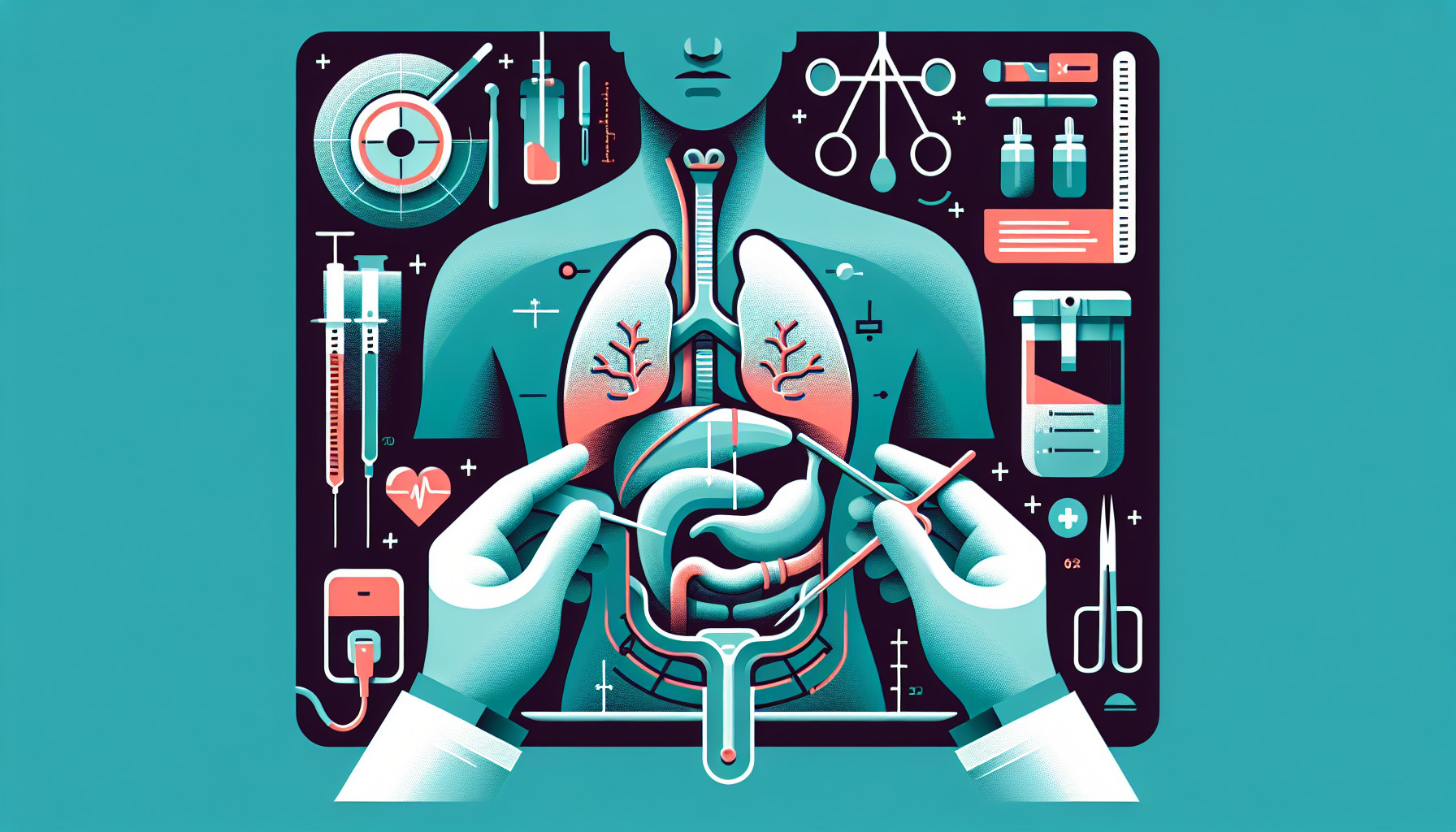Our Summary
This study highlights the growth in pancreas transplants worldwide over the past few decades. Since the first successful pancreas transplant in 1966, there have been significant improvements in both patient survival rates and the success of the transplant itself. Now, over 96% of patients survive for at least a year after the transplant, and the transplant is successful in more than 90% of cases where the pancreas and kidney are transplanted together, and in over 86% of cases where just the pancreas is transplanted. Looking at transplants done between 2001 and 2010, half of the transplanted pancreases were still functioning well after 13 years in cases where the pancreas and kidney were transplanted together, after almost 10 years in cases where the pancreas was transplanted after the kidney, and after 6 years for pancreas-only transplants. These impressive results have been achieved even as more high-risk patients are being transplanted. The improvements have been credited to better selection of patients and donors, standardized surgical techniques, and improved methods of suppressing the immune system to prevent it from attacking the transplanted organ.
FAQs
- What improvements have been made in pancreas transplants over the years?
- What is the average survival rate for patients and grafts after a pancreas transplant?
- What factors have contributed to the increase in success rates of pancreas transplants?
Doctor’s Tip
One helpful tip a doctor might tell a patient about pancreas transplant is to closely follow the prescribed immunosuppressive medication regimen. These medications are essential to prevent rejection of the transplanted pancreas and ensure long-term success of the transplant. Missing doses or not taking the medications as directed can increase the risk of rejection and lead to complications. It is important to communicate any concerns or side effects with your healthcare team so they can adjust your medications as needed. Regular monitoring and follow-up appointments are also crucial to ensure the health and function of the transplanted pancreas.
Suitable For
Patients who are typically recommended for pancreas transplant include those with type 1 diabetes who have difficult-to-control blood sugar levels despite optimal medical management, those with severe hypoglycemic unawareness, and those with end-stage kidney disease who would benefit from a simultaneous pancreas and kidney transplant. Additionally, patients who have life-threatening complications of diabetes, such as frequent diabetic ketoacidosis or severe vascular complications, may also be candidates for pancreas transplant. It is important for patients to be evaluated by a transplant center to determine if they are suitable candidates for the procedure.
Timeline
Before pancreas transplant:
- Patient is diagnosed with type 1 diabetes and is experiencing complications such as kidney failure or severe hypoglycemic episodes.
- Patient is evaluated for transplant candidacy, including medical and psychological assessments.
- Patient is placed on the transplant waiting list and may wait for a donor organ for an extended period of time.
- Patient undergoes pre-transplant testing and preparation, including blood tests, imaging studies, and consultations with the transplant team.
- Patient receives a call that a suitable donor pancreas is available and undergoes the transplant surgery.
After pancreas transplant:
- Patient is closely monitored in the hospital for complications such as rejection, infection, and surgical issues.
- Patient begins taking immunosuppressive medications to prevent rejection of the new organ.
- Patient recovers from surgery and begins a regimen of close follow-up appointments with the transplant team.
- Patient experiences improvements in blood sugar control and may no longer require insulin injections.
- Patient gradually resumes normal activities and may experience improved quality of life.
- Patient continues to receive regular monitoring and follow-up care to ensure the long-term success of the transplant.
What to Ask Your Doctor
- What are the risks and benefits of a pancreas transplant?
- How will a pancreas transplant improve my quality of life and overall health?
- What is the success rate of pancreas transplants at this facility?
- What is the average recovery time after a pancreas transplant?
- What type of immunosuppressive medications will I need to take after the transplant?
- What are the potential complications and side effects of the immunosuppressive medications?
- How often will I need to follow up with my transplant team after the surgery?
- How will my diet and lifestyle need to change after a pancreas transplant?
- What is the long-term outlook for a pancreas transplant?
- Are there any alternative treatment options I should consider before proceeding with a pancreas transplant?
Reference
Authors: Gruessner AC, Gruessner RWG. Journal: Transplant Proc. 2022 Sep;54(7):1918-1943. doi: 10.1016/j.transproceed.2022.03.059. Epub 2022 Aug 13. PMID: 35970624
